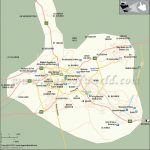Definitions related to Human Migration
Definitions related to Human Migration
Neoclassical Economics Theory
This theory states that countries with low labor supply relative to capital have high wage equilibrium while countries with high labor supply in relation to available capital have low wage equilibrium. This gap in supply and demand causes labor immigrants to flow from low wage equilibrium (sending countries) towards high wage equilibrium (receiving countries).
Dual Labor Market Theory
Dual Labor Market Theory states that countries with modern industrial developments offer two segments of labor markets. The capital-intensive, high-skilled labor market is called primary market segment while the labor-intensive market majorly requiring low skilled labor is called secondary segment. Dual Labor Market Theory argues that immigration occurs due to shortage of supply in the secondary segment (pull factor) of receiving countries as it attracts low skilled labor from the sending countries.
The New Economics of Migration Theory
This theory argues that reasons for immigration can be explained by taking into account the wider social entities like threat to household etc. This theory explains that social entities cause individuals to migrate to other countries to avoid various social and financial risks to their social entities.
Relative Deprivation Theory
According to this theory, economic inequality within the society in the sending country is the major motive behind migration to other countries (receiving countries). This theory further explains that the level of economic inequality within a sending country is a determinant of the volume of migration from a sending country.
World System Theory
World System Theory suggests that there is a global economic system where some countries benefit while other are being exploited. According to this theory, countries with better economies are always producing while the poor economies are being exploited and charged for the consumption.
Network Theory
Network theory of migration explains that international immigration changes the ethnic mix of the receiving country. The large inflows cause immigrant ethnic networks which provide a supporting environment and opportunities for other migrants from the same ethnicity thus lowering the cost of migration, increasing the probability of employment and thus enhancing the volume of immigrant population in the receiving country.
Institutional Theory
Institutional Theory focuses the formal and informal, legal or illegal supporting organizations and groups working to help or manage the immigration processes, immigrant networks etc. These organizations (individuals, groups, teams) work in different ways and provide various services to the immigrants making the immigration easier and attractive for more and more inflow of immigrants into the receiving country. This theory also considers the policies and immigration laws in the continuation of the immigration flows into a receiving country.





